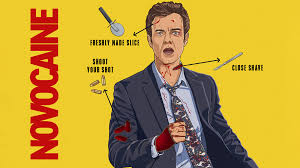On Tuesday, February 25, more than 1,000 artists came out with a silent album to protest against the United Kingdom (UK) government’s plan of making changes to the copyright law, which they said make it easier for many AI companies to train models using copyrighted work without the use of a licence.
Under the new proposals, AI developers would be able to use any creator’s content on the internet in helping to develop their models, except if the right holders decide to “withdraw.” The title of the silent album Is This What We Want? was entitled by many, hoping it will gain enough attention from the people to impact on the UK music industry and livelihoods. All of the profit that is made will be donated to Help Musicians, a charity that helps many professional musicians within the United Kingdom, including things like guidance, financial support, and advice.
Famous English singer-songwriter Kate Bush said in a statement, “In the music of the future, will our voices go unheard?” Back in February 25th, a public consultation on the legal changes were closed. The silent album features sound recordings of empty performance and studio spaces to display what many artists fear is the possible impact of the proposed law change. The album involves many artists, such as Damon Albran, The Clash, Billy Ocean, Bastille’s Dan Smith, Annie Lennox, Kate Bush, Ed O’Brien of Radiohead, Mystery Jets and Jamiroquai. On the tracklisting for the record, a message is spelled out: “The British government must not legalise music theft to benefit AI companies.”
The government is currently discussing proposals that will allow AI companies to use material which is available online, lacking respect for copyright if it is being used for data mining and text. Many generative AI programs learn from different amounts of data, such as images, music, and texts in order to create new content to make it seem like it was created by a person.
The proposal would be giving creators and artists questionable “rights reservations,” AKA the capability of opting out. However, many critics who are involved in the plan do believe that it isn’t possible for an individual artist and writer to inform thousands of divergent AI service providers that they didn’t want their own content used in this manner or monitoring what occurred to their work across the internet.
Back on Tuesday, February 25th, a spokesman from the Department of Science, Innovation, and Technology (DSIT) said in a statement, “The UK’s current regime for copyright and AI is holding back the creative industries, media, and AI sector from realizing their full potential and that cannot continue. That’s why we have been consulting on a new approach that protects the interest of both AI developers and right holders and delivers a solution which allows both to thrive. We have engaged extensively with these sectors throughout and will continue to do so.” They added, “No decisions have been taken, and no moves will be made until we are absolutely confident we have a practical plan that delivers each of our objectives.”









